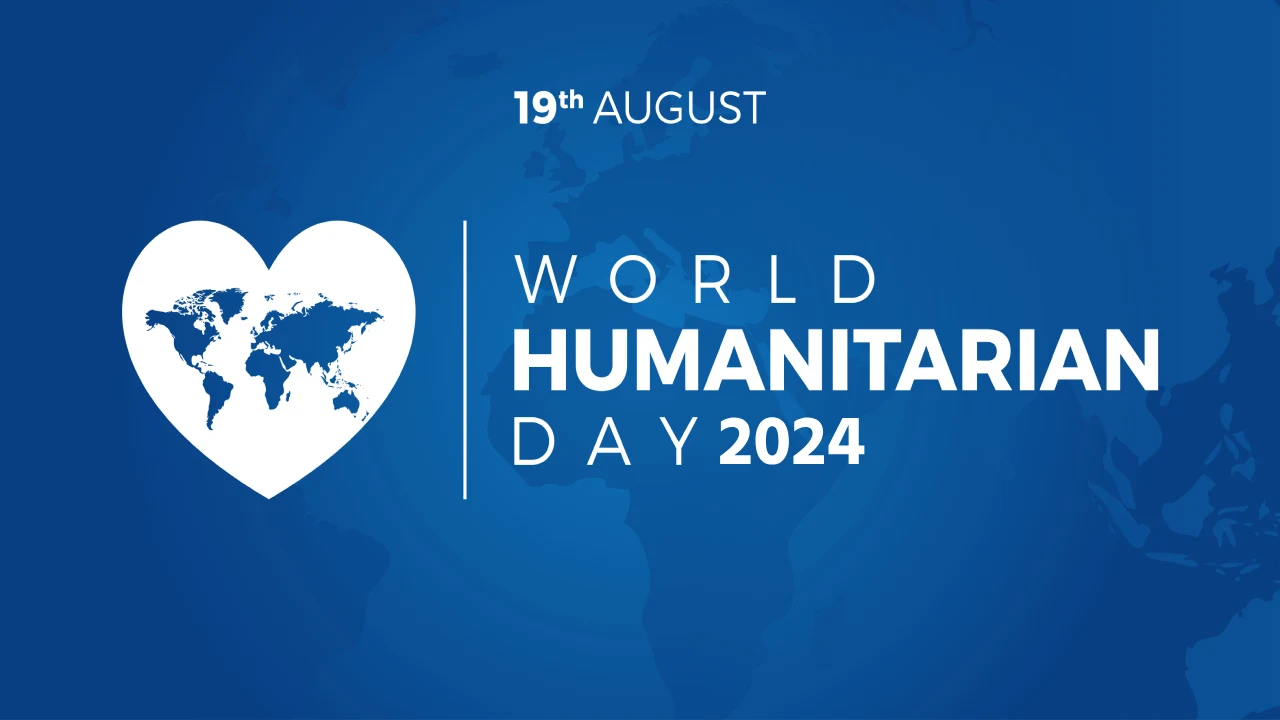
TEAM KNOWLEDGEPEDIA:-Celebrated annually on August 19th, this day highlights the contributions of humanitarians and seeks to emphasize the need for continued support for humanitarian causes. In 2024, World Humanitarian Day(WHD) offers a poignant reminder of both the ongoing challenges and the profound impact of humanitarian efforts worldwide.
World Humanitarian Day was established by the United Nations General Assembly in 2008 to mark the anniversary of the 2003 bombing of the UN headquarters in Baghdad, Iraq, which claimed the life of Sergio Vieira de Mello, a prominent UN diplomat and humanitarian. His legacy and the tragic event underscored the risks faced by humanitarian workers and the necessity of recognizing their vital role in conflict zones and disaster-stricken areas.
Theme for World Humanitarian Day 2024
Each year, WHD has a specific theme that reflects current humanitarian issues or highlights a particular aspect of humanitarian work. For 2024, the theme is “Together for Resilience”. This theme emphasizes the importance of collective action and solidarity in building resilience within communities affected by conflict, natural disasters, and other crises.
Resilience in the humanitarian context refers to the ability of individuals, communities, and systems to withstand, adapt to, and recover from shocks and stresses. It encompasses not only the capacity to recover from immediate impacts but also to build long-term capabilities that reduce vulnerability and enhance overall stability.

Humanitarian Challenges and Achievements
Natural Disasters & Conflict Zones:-
The increasing frequency and intensity of natural disasters, including hurricanes, earthquakes, and floods, have tested the resilience of affected communities and humanitarian responders. Successful interventions have included rapid response efforts, disaster preparedness programs, and rebuilding initiatives that incorporate local knowledge and capacities.
In conflict areas such as Syria, Yemen, and South Sudan, humanitarian workers face extreme risks as they strive to deliver aid amidst ongoing violence and instability. Despite these challenges, significant achievements have been made in providing life-saving assistance, advocating for ceasefires, and facilitating peace negotiations.
Climate Change & Pandemics:-
Climate change has exacerbated existing vulnerabilities and introduced new risks, particularly for communities in low-lying or environmentally fragile areas. Humanitarian responses now increasingly focus on integrating climate resilience into their programs, including sustainable development practices and climate adaptation strategies.
The COVID-19 pandemic highlighted the critical role of humanitarians in managing global health crises. Efforts to distribute vaccines, support healthcare systems, and ensure equitable access to resources have been central to the global response.
Case Studies and Stories of Impact
Syria,Haiti & Bangladesh:-
In Syria, the work of organizations like the International Committee of the Red Cross (ICRC) and Médecins Sans Frontières (MSF) has been crucial in providing medical care, food, and other necessities to those affected by years of conflict. These organizations operate in extremely challenging conditions, often negotiating with various factions to ensure aid reaches those in need.
After the devastating earthquake in 2010, humanitarian responses in Haiti involved extensive international cooperation. Efforts to rebuild infrastructure, support education, and improve health services have contributed to the country’s recovery, although challenges remain. Initiatives focusing on community-driven development and disaster preparedness have been vital in enhancing local resilience.
The Rohingya refugee crisis has seen a massive humanitarian response, with organizations working to provide shelter, food, and medical care to displaced populations. The response has also included efforts to improve living conditions in refugee camps and support educational and vocational training for refugees.

Global and Local Partnerships
Effective humanitarian work relies on the collaboration of various stakeholders, including governments, international organizations, non-governmental organizations (NGOs), local communities, and private sector actors. The combined efforts of these partners contribute to a more coordinated and effective response to crises.
NGOs & International Organizations:-
Organizations such as Save the Children, CARE, and the International Rescue Committee (IRC) operate on the ground, providing direct aid and implementing programs tailored to the specific needs of affected populations.
The United Nations Office for the Coordination of Humanitarian Affairs (OCHA), the World Food Programme (WFP), and other UN agencies play crucial roles in coordinating international responses and mobilizing resources.
Advocacy and Public Engagement
World Humanitarian Day also serves as a platform for advocacy and raising public awareness about humanitarian issues. Campaigns and events organized around WHD highlight the challenges faced by humanitarians and the importance of continued support and solidarity.
The theme for 2024 calls on individuals, communities, and nations to come together, supporting one another in the pursuit of a future where everyone can thrive despite adversity.
Table of Contents
- why Taliban say I love Hindustan - September 19, 2024
- International Day of Peace 2024 - September 18, 2024
- International Equal Pay Day 2024 - September 17, 2024
